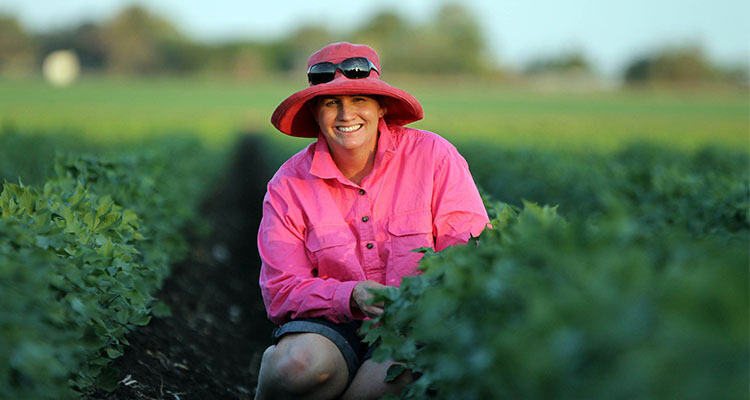
WORKING TOWARDS SAFER FARMS
The safe and fair treatment of workers on Australian cotton farms is a top priority for our growers. Thousands of families live and work on Australia's cotton farms, and the industry feels a great sense of responsibility towards them.
Australian farm workers are protected by comprehensive government regulations that safeguard worker rights, prohibit child labor, ensure fair wages, and mandate safe working conditions. The Australian cotton industry goes even further with the myBMP (Best Management Practices) program, which includes a "Worker Health and Safety" module with over 65 criteria for certification. These criteria cover recruitment, induction, training, safety, hazard elimination, and the fair treatment of workers.
INITIATIVES TAKEN BY THE AUSTRALIAN COTTON INDUSTRY TO CONTINUE IMPROVING FARM SAFETY INCLUDE:
- AgSkilled Courses: Delivered annual AgSkilled courses in New South Wales since 2017.
- SmartAg QLD Courses: Workshops focusing on first aid, working at heights, confined space, and forklift training across Queensland. These will continue for at least the next three years with funding from the Queensland Government, and demand has been extremely high.
- Cotton Picker Operation Essentials: In partnership with Real Skills Ag Training, delivered 10 cotton picker operation essential workshops across Queensland, with a strong focus on the safe operation of cotton pickers.
- First Aid Workshops: Conducted first aid workshops for growers every year from 2019 to 2024 under both AgSkilled and SmartAg QLD.
- Rural Safety & Health Alliance: Partnered with nine Research and Development Corporations, including CRDC, to improve health and safety records in rural industries.
- Farmsafe Australia: Cotton Australia is a supporter and member of Farmsafe Australia and has representation on their board.
- Rural Industry Sector Standing Committee (RISSC): Cotton Australia has representation on the Queensland government’s RISSC, which informs the Workplace Health and Safety Board of the industry's requirements.
- Cotton Industry WHS Report: The Australian cotton industry runs a sentinel report of the Health and Safety Data for Australian Cotton Farms every five years.
CONTINUED EFFORTS NEEDED
Despite significant investments in workplace health and safety programs, agriculture remains a high-risk sector for fatalities, serious injuries, and illnesses. From 2019 to July 2024, the agricultural sector had one of the highest rates of fatalities and serious injuries, with an average of 55 lives lost per year on Australian farms. In the cotton industry specifically, five people lost their lives on cotton farms in Australia from July 2019 to June 2023. More efforts are needed to reduce these statistics and ensure a safer future for the industry.
FATALITIES
The previous review identified a total of six deaths that definitely occurred within cotton production between 2014 and 2019, involving aeroplanes, vehicles, and machinery. Since then, two additional cases were identified for this period, bringing the total to eight fatalities. In the more recent period from October 2019 to December 2023, there have been fewer than five cases on cotton properties, primarily caused by machinery and vehicles. While cases where it was clear that the fatality involved another sector (e.g., cattle or grains) were excluded from the analysis, a further two cases could have possibly occurred in cotton production and will be assessed as more information becomes available in coronial records.
Overall, since 2001, the total direct impact of fatal incidents in the cotton industry has exceeded $73 million, with the average cost of a fatality in 2023 Australian dollars approaching $3.5 million. Additionally, 21 fatalities since 2001 have been definitively determined as cotton-related.
INJURIES
The industry has had a relatively equal distribution of short-term (0-4 day) and more serious (5+ days) workers' compensation claims when assessed on annual means. However, in the most recent five-year period, there has been an increase in more serious claims, approaching 50 such claims each year.
